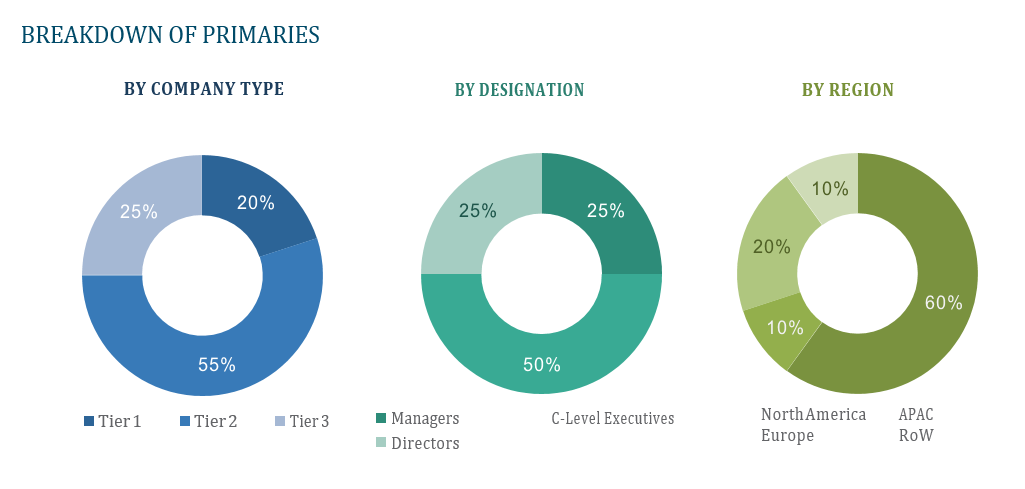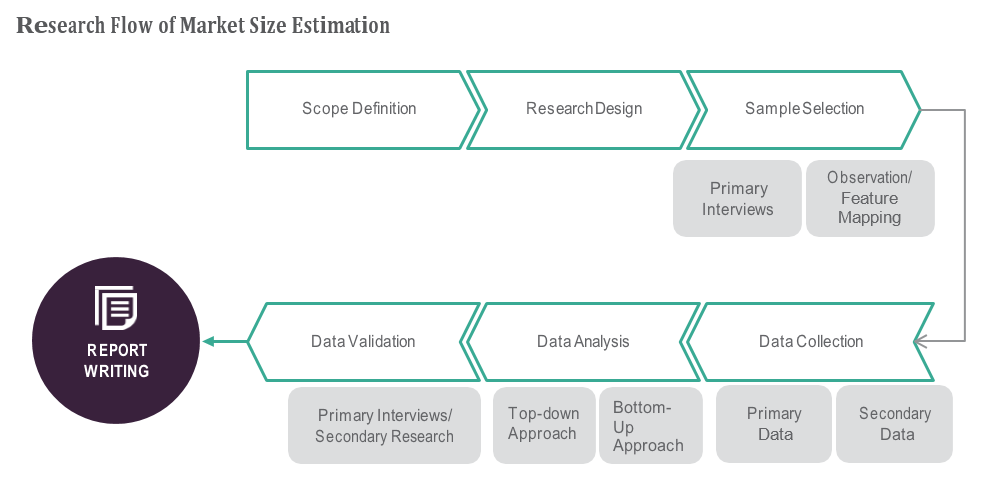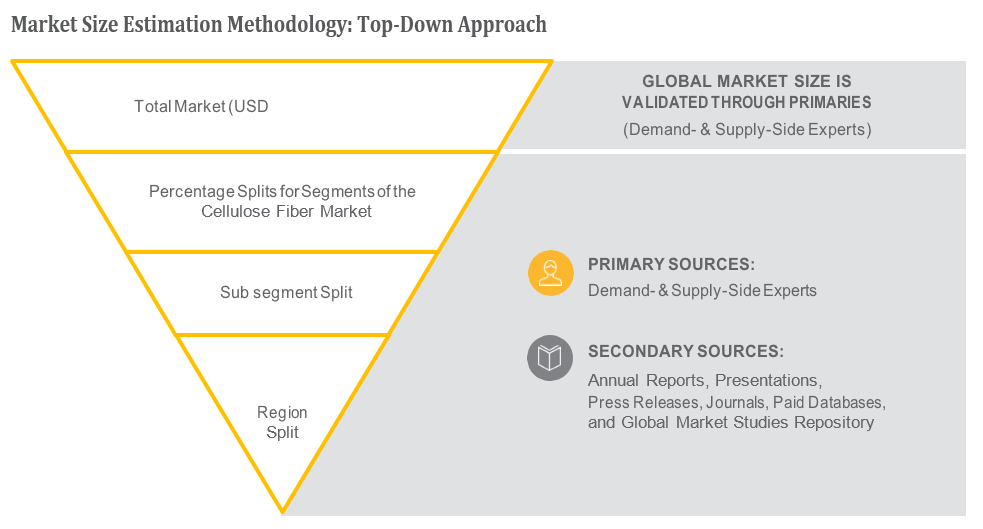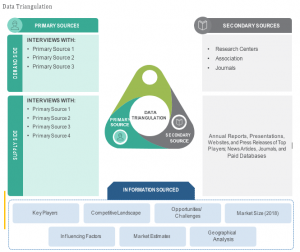OVERVIEW
The Digital Identity Solutions Market is currently valued at USD 34.5 billion in 2024 and will be growing at a CAGR of 19.3% over the forecast period to reach an estimated USD 83.2 billion in revenue in 2029. The digital identity solutions market is a dynamic sector within the broader realm of cybersecurity and digital authentication. As technology continues to advance and more aspects of daily life transition into digital spaces, the need for robust and secure identity verification methods becomes increasingly critical.In the contemporary landscape, digital identity solutions encompass a wide array of technologies and methodologies aimed at verifying and managing the identities of individuals, organizations, and even devices in the online realm. These solutions play a pivotal role in ensuring secure access to digital services, protecting against identity theft and fraud, and enabling seamless transactions in the digital economy.
The escalating frequency and sophistication of cyber threats, including identity theft and fraud, necessitate robust identity verification mechanisms to safeguard sensitive information and digital assets. Additionally, the accelerating pace of digital transformation across industries demands scalable and secure identity management solutions to facilitate seamless access to digital services and ensure regulatory compliance. Furthermore, the proliferation of mobile devices and IoT (Internet of Things) endpoints amplifies the need for identity solutions that can authenticate not only individuals but also devices within interconnected ecosystems. Moreover, evolving regulatory landscapes worldwide, such as GDPR (General Data Protection Regulation) in Europe and similar data privacy laws globally, drive organizations to adopt stringent identity verification measures to protect user data and ensure transparency in data handling practices. Lastly, the rising consumer preference for frictionless yet secure authentication experiences fuels the demand for innovative biometric and behavioral authentication technologies, reshaping the digital identity solutions market.
Table of Content
Market Dynamics
Drivers:
The escalating frequency and sophistication of cyber threats, including identity theft and fraud, necessitate robust identity verification mechanisms to safeguard sensitive information and digital assets. Additionally, the accelerating pace of digital transformation across industries demands scalable and secure identity management solutions to facilitate seamless access to digital services and ensure regulatory compliance. Furthermore, the proliferation of mobile devices and IoT (Internet of Things) endpoints amplifies the need for identity solutions that can authenticate not only individuals but also devices within interconnected ecosystems. Moreover, evolving regulatory landscapes worldwide, such as GDPR (General Data Protection Regulation) in Europe and similar data privacy laws globally, drive organizations to adopt stringent identity verification measures to protect user data and ensure transparency in data handling practices. Lastly, the rising consumer preference for frictionless yet secure authentication experiences fuels the demand for innovative biometric and behavioral authentication technologies, reshaping the digital identity solutions market.
Key Offerings:
Key offerings in the digital identity solutions market encompass a range of innovative technologies and services tailored to address diverse identity verification needs. These offerings include advanced biometric authentication solutions leveraging modalities such as fingerprint recognition, facial recognition, and iris scanning for highly secure user verification. Additionally, comprehensive identity management platforms provide centralized control over user identities, access permissions, and authentication protocols, enabling organizations to streamline operations and bolster security. Blockchain-based identity solutions offer decentralized and tamper-resistant identity verification mechanisms, enhancing trust and transparency in digital transactions. Furthermore, Identity as a Service (IDaaS) offerings provide cloud-based identity management solutions, offering scalability and flexibility for businesses of all sizes. Government initiatives and regulations drive the adoption of standards-compliant identity solutions, while cybersecurity integration ensures robust protection against evolving threats.
Restraints :
Concerns surrounding data privacy and security pose significant challenges, as the collection and management of personal data raise ethical and regulatory compliance issues. Additionally, interoperability challenges among different identity verification systems and standards limit the seamless integration of digital identity solutions across diverse platforms and environments. Moreover, the complexity and cost associated with implementing and maintaining advanced identity verification technologies may deter adoption, particularly among small and medium-sized enterprises (SMEs). Furthermore, the lack of universal trust frameworks and standards for digital identities hampers cross-border authentication and limits the scalability of identity solutions on a global scale. Lastly, resistance to change and inertia in traditional identity management practices within organizations impede the transition towards more secure and efficient digital identity solutions. Addressing these restraints requires collaborative efforts among industry stakeholders to develop interoperable, privacy-preserving, and user-centric identity solutions that inspire trust and compliance in an increasingly digital world.
Regional Information:
• In North America, technological innovation and stringent data privacy regulations drive the digital identity solutions market. The region boasts major players like IBM, Microsoft Corporation, and Accenture, which continuously push the boundaries of biometric authentication, blockchain-based identity solutions, and AI-driven identity management platforms. Additionally, high-profile cybersecurity incidents amplify the demand for advanced identity verification technologies to mitigate risks.
• Europe leads the world in data privacy regulations with GDPR, fostering a strong emphasis on secure and transparent identity verification solutions. Government initiatives like eIDAS promote cross-border digital identities, while biometric authentication gains momentum in sectors like banking and healthcare. Digital transformation efforts further accelerate the adoption of identity management platforms and decentralized solutions across the region.
• In the Asia-Pacific region, rapid digitization and a mobile-centric approach drive the demand for digital identity solutions. With growing internet penetration and government-led initiatives like Aadhaar in India, the region witnesses significant investments in digital identity infrastructure. Mobile-based authentication solutions leveraging biometrics thrive, particularly in finance and e-commerce sectors, while varying regulatory landscapes pose challenges for standardized adoption.
Recent Developments:
• In May 2023, iProov partnered with Wultra to provide iProov’s biometric solutions suite as part of its portfolio of digital banking solutions.
• In March 2023, Thales announced a partnership with the Finnish police. The National Police Board of Finland is planning to launch new biometric travel and digital ID documents.
Key Players:
IBM, Microsoft Corporation, Accenture, Gemalto, Idemia, Okta, Inc., Ping Identity, ForgeRock, HiD Global, and Auth0.
1) What is the projected market value of the Digital Identity Solutions Market?
– The Digital Identity Solutions Market is expected to reach an estimated value of USD 83.2 billion in revenue by 2029.
2) What is the estimated CAGR of the Digital Identity Solutions Market over the 2024 to 2029 forecast period?
– The CAGR is estimated to be 19.3% for the Digital Identity Solutions Market over the 2024 to 2029.
3) Who are the key players in the Digital Identity Solutions Market?
– IBM, Microsoft Corporation, Accenture, Gemalto, Idemia, Okta, Inc., Ping Identity, ForgeRock, HiD Global, and Auth0.
4) What are the drivers for the Digital Identity Solutions Market?
– Cyber threats, digital transformation, and the rise of mobile devices and IoT endpoints necessitate robust identity verification mechanisms. Evolving regulatory landscapes like GDPR and consumer preference for frictionless authentication drives organizations to adopt stringent measures. Innovative biometric and behavioral authentication technologies are reshaping the digital identity solutions market.
5) What are the restraints and challenges in the Digital Identity Solutions Market?
Data privacy and security concerns, interoperability issues, complexity, and cost of identity verification systems limit the integration of digital identity solutions. Traditional identity management practices also impede the transition to secure, efficient solutions. Collaborative efforts among industry stakeholders are needed to develop privacy-preserving, user-centric identity solutions that inspire trust and compliance in the digital world..
6) What are the key applications and offerings of the Digital Identity Solutions Market?
– Digital identity solutions market offers advanced biometric authentication, centralized control over user identities, blockchain-based solutions, and Identity as a Service (IDaaS) solutions. Government initiatives drive adoption of standards-compliant solutions, while cybersecurity integration ensures robust protection against evolving threats. These technologies streamline operations, enhance trust, and provide scalability for businesses.
7) Which region is expected to drive the market for the forecast period?
– North America is expected to have the highest market growth from 2024 to 2029
Why Choose Us?
Insights into Market Trends: Global Market Studies reports provide valuable insights into market trends, including market size, segmentation, growth drivers, and market dynamics. This information helps clients make strategic decisions, such as product development, market positioning, and marketing strategies.
Competitor Analysis: Our reports provide detailed information about competitors, including their market share, product offerings, pricing, and competitive strategies. This data can be used to inform competitive strategies and to identify opportunities for growth and expansion.
Industry Forecasts: Our reports provide industry forecasts, which will inform your business strategies, such as investment decisions, production planning, and workforce planning. These forecasts can help you to prepare for future trends and to take advantage of growth opportunities.
Access to Industry Experts: Our solutions include contributions from industry experts, including analysts, consultants, and subject matter experts. This access to expert insights can be valuable for you to understand the market.
Time and Cost Savings: Our team at Global Market Studies can save you time and reduce the cost of conducting market research by providing comprehensive and up-to-date information in a single report, avoiding the need for additional market research efforts.









